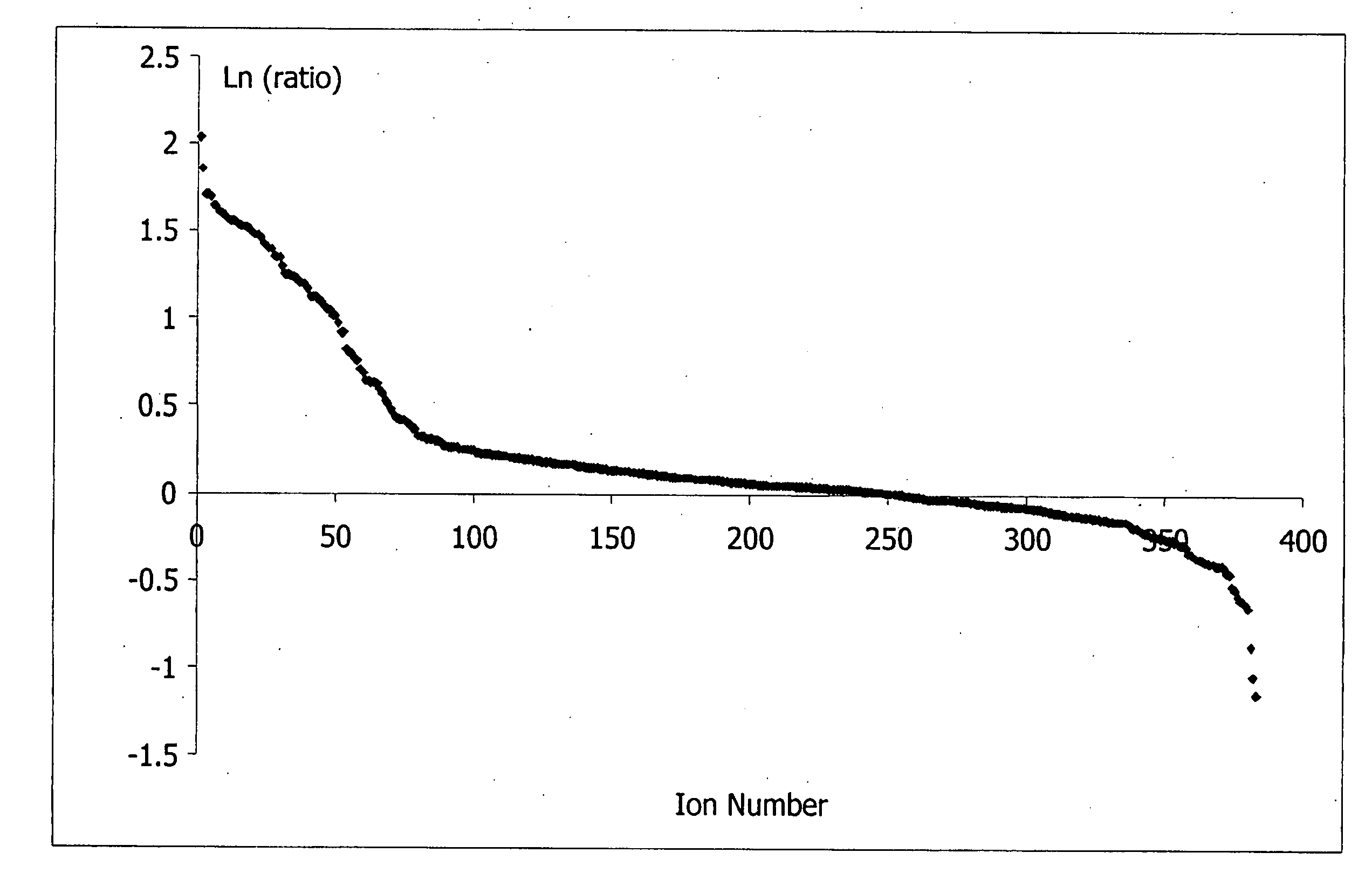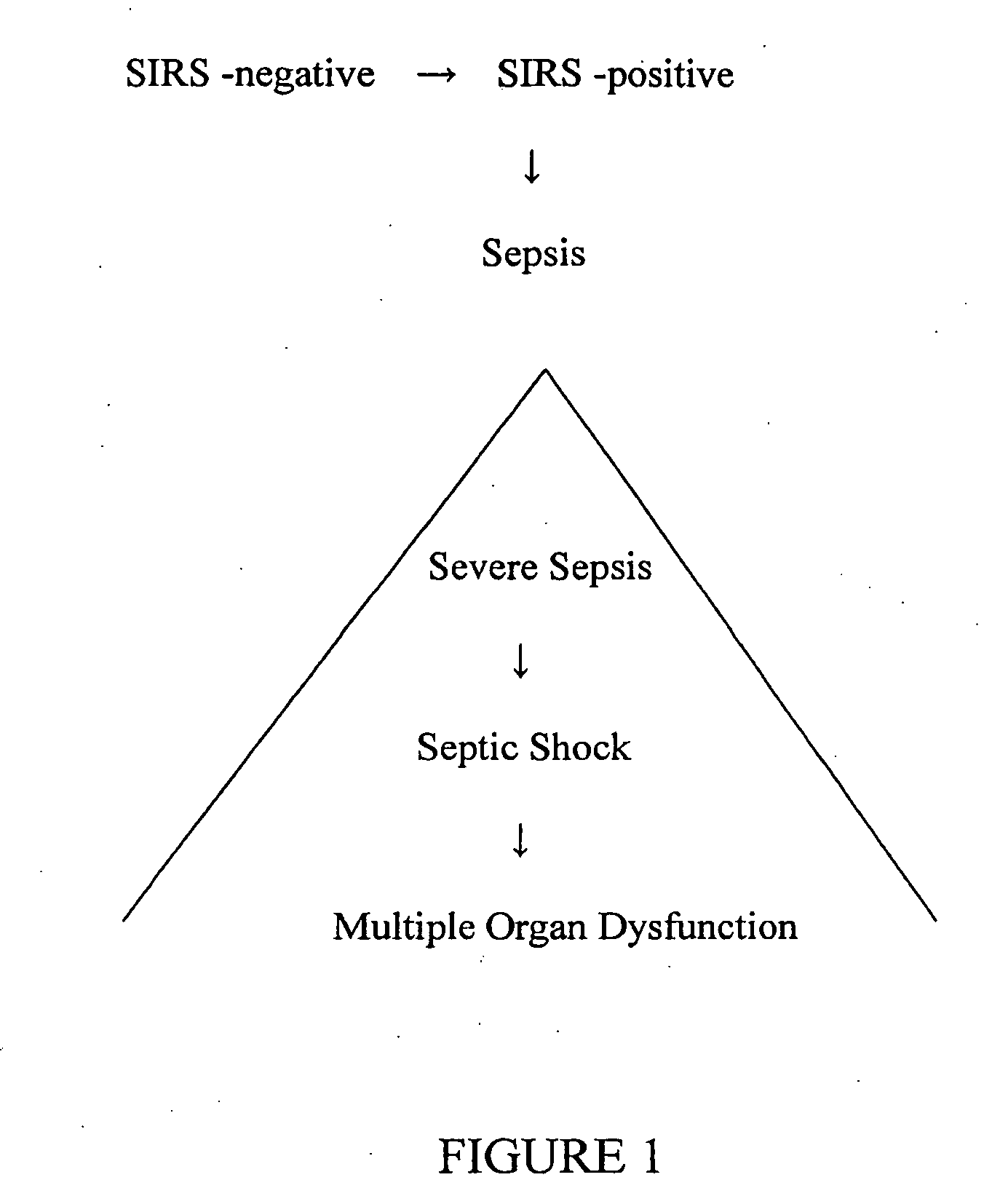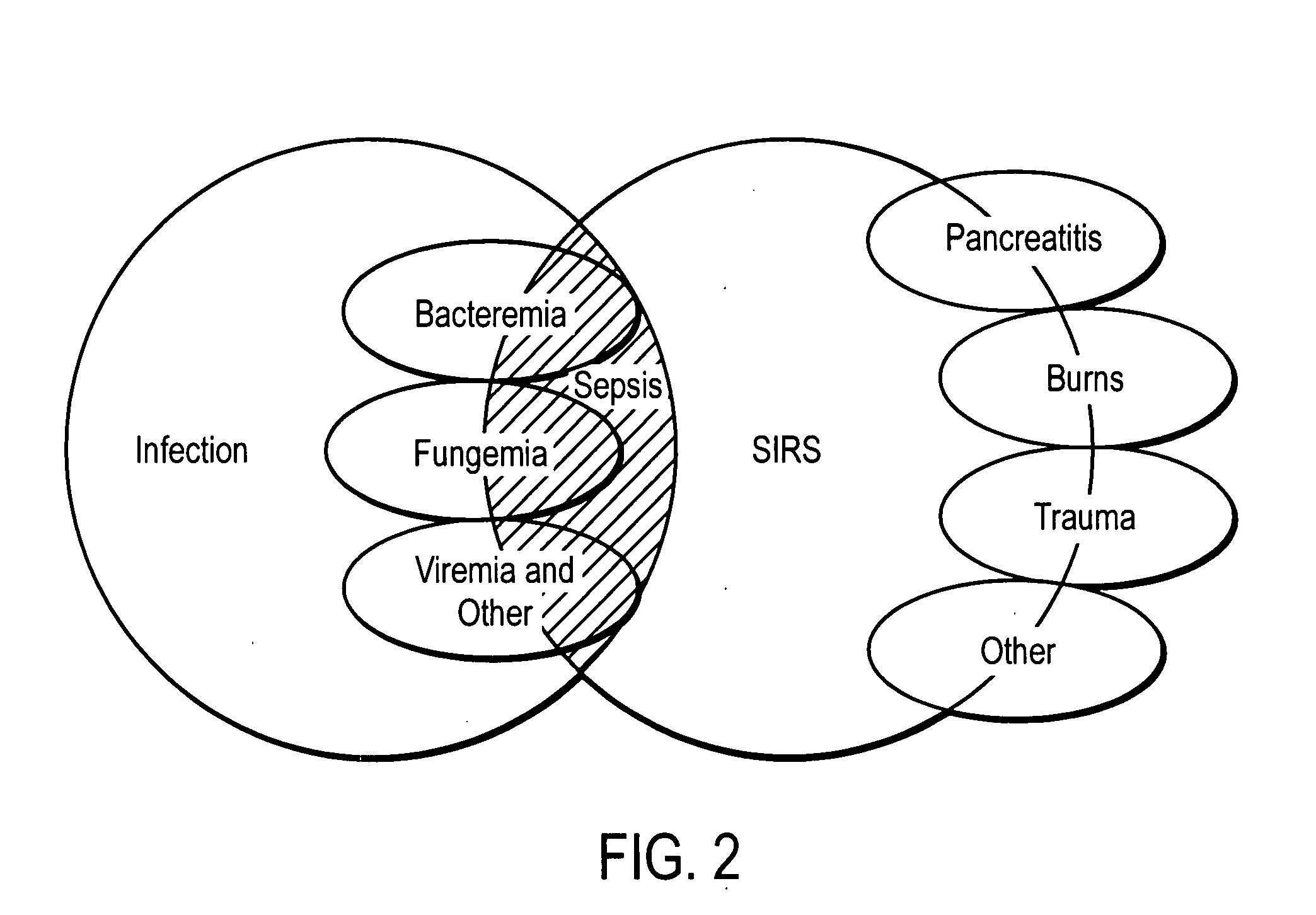Use of mass spectrometry to detect sepsis
a mass spectrometry and sepsis technology, applied in the field of mass spectrometry, can solve the problems of insufficient identification of particular biomarkers and limited clinical utility of diagnosis, and achieve the effect of accurate, rapid, and sensitive prediction and diagnosis
- Summary
- Abstract
- Description
- Claims
- Application Information
AI Technical Summary
Benefits of technology
Problems solved by technology
Method used
Image
Examples
example 1
Identification of Small Molecule Biomarkers Using Quantitative Liquid Chromatography / Electrospray Ionization Mass Spectrometry (LC / ESI-MS)
1.1. Samples Received and Analyzed
[0086] Reference biomarker profiles were established for two populations of patients. The first population (“the SIRS group”) represented 20 patients who developed SIRS and who entered into the present study at “Day 1,” but who did not progress to sepsis during their hospital stay. The second population (“the sepsis group”) represented 20 patients who likewise developed SIRS and entered into the present study at Day 1, but who progressed to sepsis at least several days after entering the study. Blood samples were taken approximately every 24 hours from each study group. Clinical suspicion of sepsis in the sepsis group occurred at “time 0,” as measured by conventional techniques. “Time—24 hours” and “time—48 hours” represent samples taken about 24 hours and about 48 hours, respectively, preceding the clinical su...
example 2
Identification of Protein Biomarkers Using Quantitative Liquid Chromatography-Mass Spectrometry / Mass Spectrometry (LC-MS / MS)
2.1 Samples Received and Analyzed
[0127] As above, reference biomarker profiles were obtained from a first population representing 15 patients (“the SIRS group”) and a second population representing 15 patients who developed SIRS and progressed to sepsis (“the sepsis group”). Blood was withdrawn from the patients at Day 1, time 0, and time 48 hours. In this case, 50-75 μL plasma samples from the patients were pooled into four batches: two batches of five and 10 individuals who were SIRS-positive and two batches of five and 10 individuals who were sepsis-positive. Six samples from each pooled batch were further analyzed.
[0128] Plasma samples first were immunodepleted to remove abundant proteins, specifically albumin, transferrin, haptoglobulin, anti-trypsin, IgG, and IgA, which together constitute approximately 85% (wt %) of protein in...
PUM
| Property | Measurement | Unit |
|---|---|---|
| body temperature | aaaaa | aaaaa |
| body temperature | aaaaa | aaaaa |
| retention time | aaaaa | aaaaa |
Abstract
Description
Claims
Application Information
 Login to View More
Login to View More - R&D
- Intellectual Property
- Life Sciences
- Materials
- Tech Scout
- Unparalleled Data Quality
- Higher Quality Content
- 60% Fewer Hallucinations
Browse by: Latest US Patents, China's latest patents, Technical Efficacy Thesaurus, Application Domain, Technology Topic, Popular Technical Reports.
© 2025 PatSnap. All rights reserved.Legal|Privacy policy|Modern Slavery Act Transparency Statement|Sitemap|About US| Contact US: help@patsnap.com



